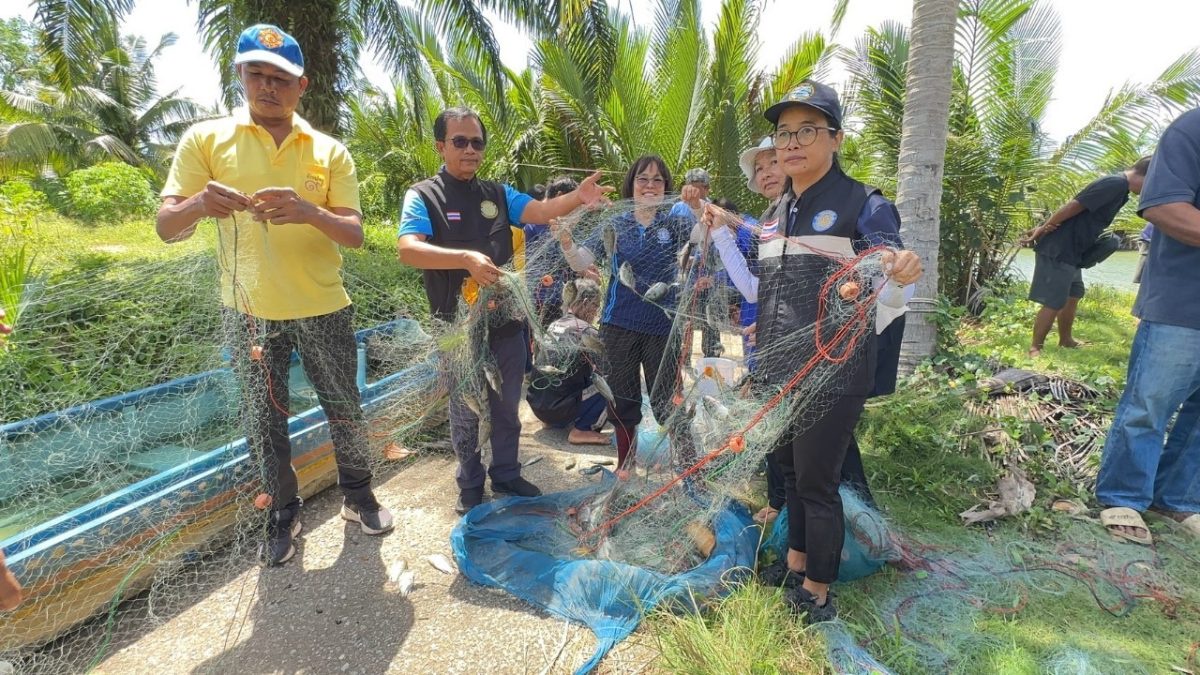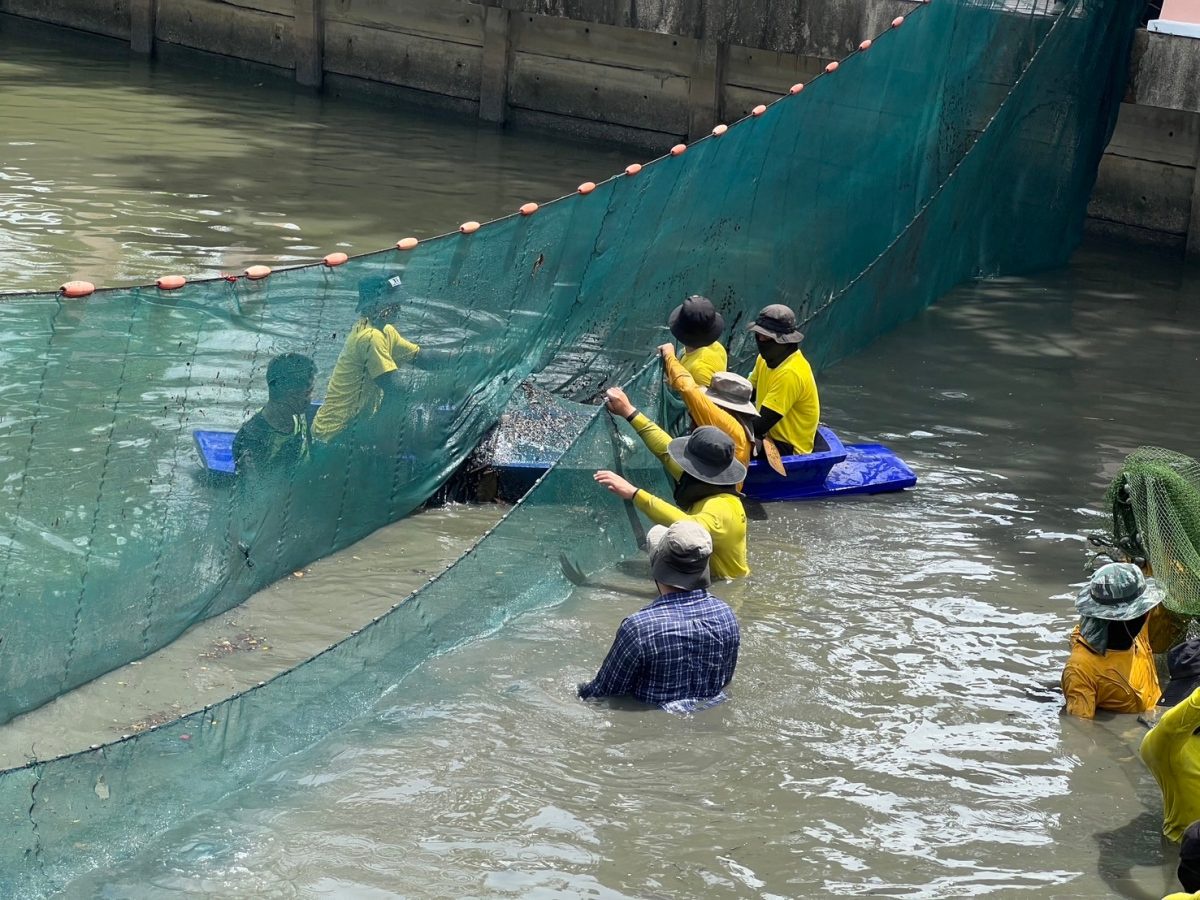Mr. Adit Krisanawong, CPF's Head of Public and Private Relations, reported significant progress across all five projects, particularly in rapidly reducing fish populations in affected waterways. A key initiative involves purchasing Blackchin Tilapia for fishmeal production, in collaboration with Sirisaeng Arumpee Fishmeal factory in Samut Sakhon province. To date, the factory has procured 1,300,000 kilograms from local fishermen and 18 fish markets in Samut Sakhon and neighboring provinces, with an ultimate target of 2 million kg.
"Our month-long collaboration with the Department of Fisheries and related organizations has led to the removal of more than 1.3 million kilograms of Blackchin Tilapia from water sources across 15 provinces," Mr. Adit stated. "This has resulted in a notable decrease in fish populations in many areas. We are committed to ongoing cooperation to eradicate this invasive species."
The second project focuses on introducing predatory fish into affected waterways. CPF has supplied 70,000 Asian seabass (4-5 inches or larger) for release in Samut Songkhram, Samut Sakhon, Chanthaburi, and Rayong provinces. In collaboration with Department of Fisheries experts, CPF plans to release up to 200,000 predator fish, with effectiveness to be evaluated over the next 2-3 months.
In Samut Songkram, the local Fisheries Department has distributed 4,000 CPF-provided Asian seabass to aquaculture farmers to control Blackchin Tilapia populations in private ponds. Participating farmers must return 10% of the received fish to expand the project's reach.
The third initiative supports the Department of Fisheries in organizing fish removal activities. This multi-sector effort involves provincial governors, the Department of Corrections, and the Royal Thai Army. CPF has facilitated 32 events to date, providing fishing equipment supplies, food and drinking water for activity's participants, resulting in the removal of over 25,000 kilograms of mature fish.
Additionally, CPF is partnering with academic institutions for long-term solutions. This includes developing culinary applications to promote consumption and researching breeding control methods. A recent collaboration with King Mongkut's Institute of Technology Ladkrabang aims to implement eDNA technology for more accurate population surveys, enhancing future control strategies for invasive aquatic species.
Source: Charoen Pokphand Foods

